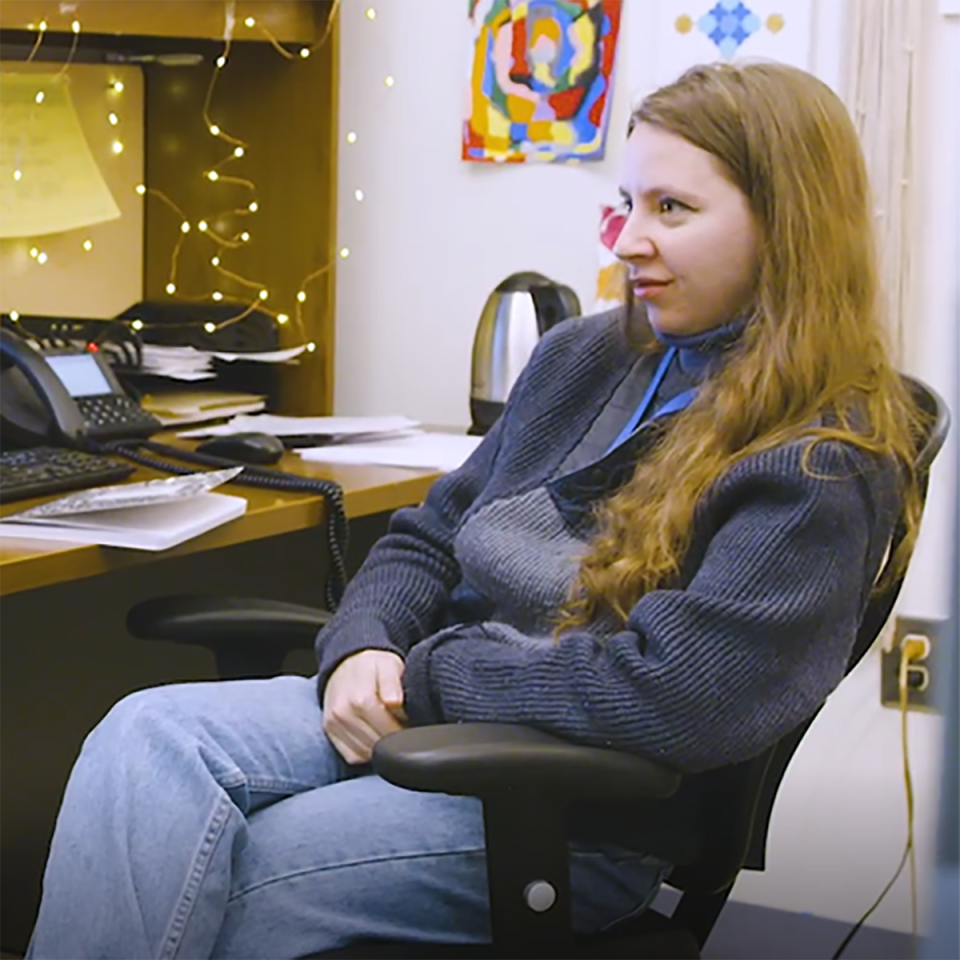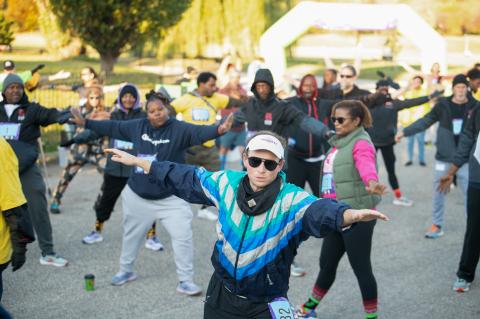
Are we truly listening?
Behavioral Health Therapist Johanna Galat reflects on nine clients who passed away in 2020 and the systems that normalized their pain.
I’ve been attending Homeless Persons’ Memorial Day since before I joined Health Care for the Homeless as a therapist.
At December’s memorial, I heard the names of nine of my clients. Most of them were Black and men in their 50’s.
Nicholas* volunteered all over the city. Mary* loved Madonna and Justin Timberlake. Ronald* wrote poems about the universe. And Lisa* was so creative with a really friendly soul. There were so many different things to love about them. The only thing they had in common was being treated badly by the world to the point of homelessness—a trauma that played a part in their deaths.
Having a home means you’ll live longer, yet housing is treated as something to be earned. It’s like charging someone to breathe.
Discrimination takes a toll, too. Whether in a hospital or health center, we as health care providers often believe people’s state of emergency is too constant to be real.
Many of the people I see suffer from having their pain ignored. And we need to take responsibility for the health care system that causes and normalizes this pain.
Mary didn’t like going to hospitals even though she had a lot of medical issues. At times, staff would attribute everything to her delusions.
Robert* was repeatedly turned down for benefits because he wasn’t considered disabled enough. I helped him prepare for an appeal and he died of a heart attack later that day—unable to make it to the hospital.
Nicholas had a brain tumor, but I thought his depression was related to getting housed and having space to process his trauma. We don’t know his cause of death, but it’s possible that I missed a bigger, life-threatening issue.
I don’t want 2020 to be representative of the future. As a health care provider, it’s my responsibility to confront my own bias and fight for policies I believe in, like rent control and more funding for public housing. It’s on all of us to dismantle the systems that lead to the avoidable deaths of our friends and neighbors.
*These names are pseudonyms
Read the names of the 157 Baltimore City residents who died in 2020
More Recent News
At our annual staff holiday party, we take time to recognize and celebrate staff members who best represent our Core Values, as well as one recipient of the Von Bradshaw Award, named after Delvonia "Von" Bradshaw, who passed away in 2024 and truly held the principles of Health Care for the Homeless to heart. Please congratulate your colleagues when you see them!
Those of us in the Health Care for the Homeless community share a belief in something powerful: that everyone should have a place to call home.
Hope for that vision isn’t passive. It’s something that clients, staff and community supporters make possible together.
With SNAP benefits in Maryland facing uncertainty, many families are wondering how they’ll put food on the table. Here are ways Health Care for the Homeless is helping, as well as a list of local food assistance resources.
On Saturday, November 1, more than 300 runners, walkers, friends and volunteers gathered in Patterson Park for the 2025 Rock Your Socks 5K. Read all about this year's awesome event!




